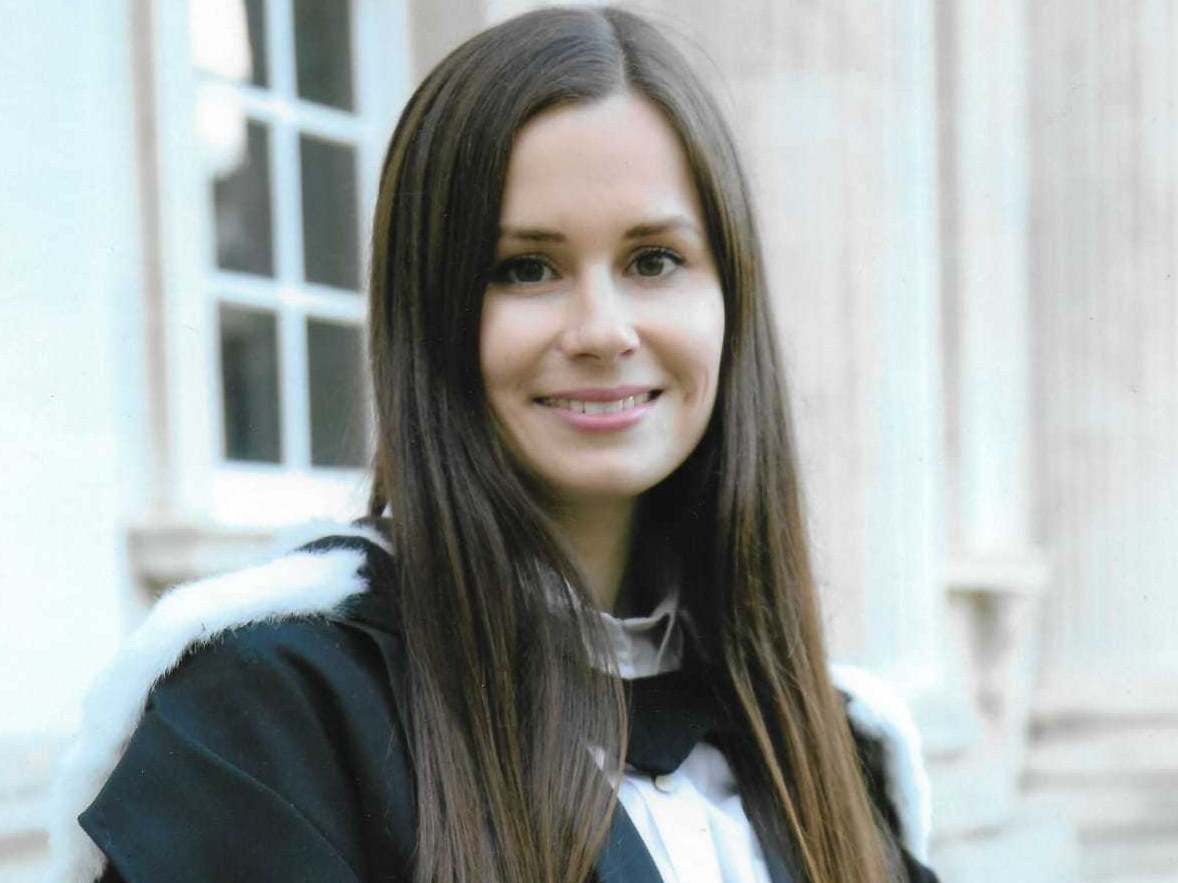Kylie Moore-Gilbert named as British-Australian academic detained in notorious Iranian jail
Revelation follows news of blogger couple held in same prison for unrelated incident

Your support helps us to tell the story
From reproductive rights to climate change to Big Tech, The Independent is on the ground when the story is developing. Whether it's investigating the financials of Elon Musk's pro-Trump PAC or producing our latest documentary, 'The A Word', which shines a light on the American women fighting for reproductive rights, we know how important it is to parse out the facts from the messaging.
At such a critical moment in US history, we need reporters on the ground. Your donation allows us to keep sending journalists to speak to both sides of the story.
The Independent is trusted by Americans across the entire political spectrum. And unlike many other quality news outlets, we choose not to lock Americans out of our reporting and analysis with paywalls. We believe quality journalism should be available to everyone, paid for by those who can afford it.
Your support makes all the difference.The Australian Government has named the third person revealed this week to be in detention in prison in Iran as a Melbourne academic who has published work on the 2011 Arab uprisings and on authoritarian governments.
British-Australian Kylie Moore-Gilbert, a Cambridge-educated academic who is now a lecturer in Islamic Studies at Melbourne University, has been in Tehran's notorious Evin prison for almost a year, having reportedly been given a 10-year sentence.
Her case came to light this week along with those of another British-Australian woman, Jolie King, and her Australian boyfriend Mark Firkin, who have been held for the past 10 weeks in an unrelated incident.
The Australian Government has said it is lobbying Tehran to ensure all three are appropriately cared for.
The University of Melbourne's website lists Dr Moore-Gilbert on its “Find an expert” page as a lecturer at the university's Asia Institute.
It says she “specialises in Middle Eastern politics, with a particular focus on the Arab Gulf states,” and that she had published work on the 2011 Arab uprisings, authoritarian governance, and on the role of new media technologies in political activism.
The Department of Foreign Affairs and Trade on Saturday released a statement from Dr Moore-Gilbert's family, which said: “We have been and continue to be in close contact with the Australian Government.
“Our family thanks the Government and the University of Melbourne for their ongoing support at this distressing and sensitive time. We believe that the best chance of securing Kylie's safe return is through diplomatic channels.
“We will not be making any further comment and would like to request that our privacy - and that of our wider family and friends - is respected at this time.”
Although Iranian authorities have not made public the charges against Dr Moore-Gilbert, 10-year sentences have regularly been dealt in the country to those convicted of spying.
While news of the trio's incarcerations only surfaced this week, Australia's Foreign Minister Marise Payne says she has raised their cases “many times” with her Iranian counterpart Javad Zarif.
And Senator Payne has denied the arrests were politically motivated, although some reports have speculated the trio are being held in hope of giving Iran political leverage on a number of ongoing disputes with the western countries.
“We have no reason to think that these arrests are connected to international concern over Iran's nuclear programme, United Nations sanction enforcement or maritime security concerning the safety of civilian shipping,” Senator Payne said.
News of the three prisoners this week has come amid a downturn in relations between Britain and Iran, sparked by issues including the Royal Marines' seizure near Gibraltar in July of an Iranian oil tanker, the Adrian Darya 1.
Iran responded by seizing British-flagged oil tanker the Stena Impero in what was another chapter in a campaign of interfering with shipping in the Strait of Hormuz.
While Britain released the Adrian Darya 1, the Stena Impero is still being held by Iran.
Relations between Tehran and the west, especially the United States, have also been strained over attempts to restrict Iran's nuclear programme.
Ms King and Mr Firkin, who left their home in Perth, Western Australia, in 2017, had been posting updates on their trip across Asia on social media before being arrested, reportedly for endeavouring to use a drone to take aerial footage.
Evin prison, the main detention centre for Iran's political prisoners, also houses 41-year-old Nazanin Zaghari-Ratcliffe, a British-Iranian mother of one who is midway through a five year sentence on spying charges which began in 2016.
While Iran has not commented publicly on any of the arrests, in April Foreign Minister Zarif proposed swapping Mrs Zaghari-Ratcliffe for Negar Ghodskani, an Iranian woman in jail in the US.
PA
Join our commenting forum
Join thought-provoking conversations, follow other Independent readers and see their replies
Comments